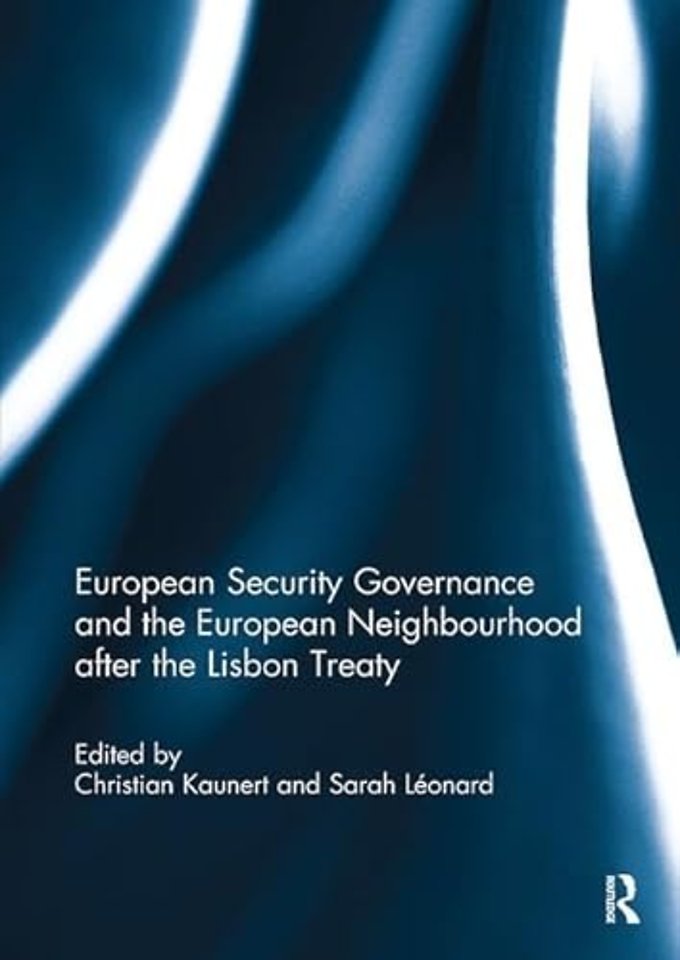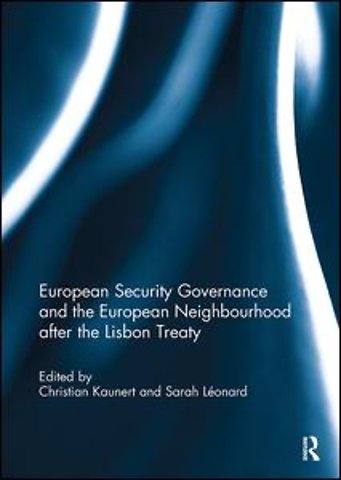European Security Governance and the European Neighbourhood after the Lisbon Treaty
Samenvatting
The EU has often been considered to be a weak security actor. However, any assessment of the EU’s role in international security is underpinned by a specific understanding of security. This book is based on a broad understanding of security. We consider that security concerns are increasingly triggered by challenges such as terrorism, climate change, mass migration flows, and many other ‘non-traditional’ security issues. This book tries to capture these aspects of the EU’s fast changing security policies following the entry into force of the Lisbon Treaty on 1 December 2009.
There are several common themes stemming from a combined reading of the chapters. Firstly, the EU has sought to simultaneously pursue its security objectives and spread its values, such as democracy, the rule of law, and human rights, by encouraging reforms in its neighbourhood. However, it is increasingly evident that there are tensions and contradictions between these two objectives, which can be illuminated and better understood by considering another strand of literature, with which there has been little engagement in EU studies to date, namely the literature on human security. This book is the first to analyse these hugely topical developments in European security after the Lisbon Treaty.
It was published as a special issue of Perspectives on European Politics and Society.
Specificaties
Net verschenen
Rubrieken
- aanbestedingsrecht
- aansprakelijkheids- en verzekeringsrecht
- accountancy
- algemeen juridisch
- arbeidsrecht
- bank- en effectenrecht
- bestuursrecht
- bouwrecht
- burgerlijk recht en procesrecht
- europees-internationaal recht
- fiscaal recht
- gezondheidsrecht
- insolventierecht
- intellectuele eigendom en ict-recht
- management
- mens en maatschappij
- milieu- en omgevingsrecht
- notarieel recht
- ondernemingsrecht
- pensioenrecht
- personen- en familierecht
- sociale zekerheidsrecht
- staatsrecht
- strafrecht en criminologie
- vastgoed- en huurrecht
- vreemdelingenrecht

